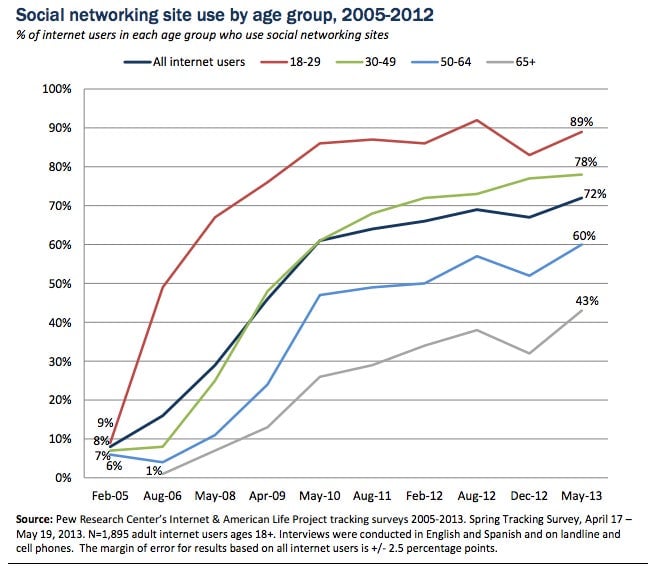One in ten of your friends will never be on Facebook
In any age group, there will always be a group of people who prefer to stay off of social networking sites, and a report by Pew Research Center’s Internet & American Life Project suggests that you might be able to quantify that group’s size.

In any age group, there will always be a group of people who prefer to stay off of social networking sites, and a report by Pew Research Center’s Internet & American Life Project suggests that you might be able to quantify that group’s size.
Pew’s latest report looks at trends in social networking use among different age groups within the US. Not surprisingly, 18- to 29-year-old internet users dominate social networking sites. More surprising: Since 2010, the percentage of 18-to 29-year-old internet users who actively use social networking sites has largely flatlined at around 90%.
Why is that? We chalk it up to some young people preferring to stay off social networks because they are concerned about easy access to their personal information, either because they are private personally or because they fear losing a job if a potential employer comes across a non-professional image. News of the US National Security Agency’s PRISM spying program has only added to privacy concerns.
In June, market analyst firm On Device Research released a study that found that one in ten young people were rejected for a job on the grounds of their social media account. Digital branding expert Drew Denvie recently told PR Week that young people were shying away from social networks due to a renewed focus on privacy.
As the information deluge accelerates, there may also be a return to old-fashioned communication (pen and paper or email) or to live interactions with friends and families.
A bigger opportunity for expanding the reach of social networking sites is older people. Often late adopters of new technologies, the percentage of people aged 65 and older who use social networking sites has risen by 43% since 2009. Boosting the percentages of older people while preserving a social site’s “cool” factor will be an interesting challenge for Facebook’s new chief marketing officer.